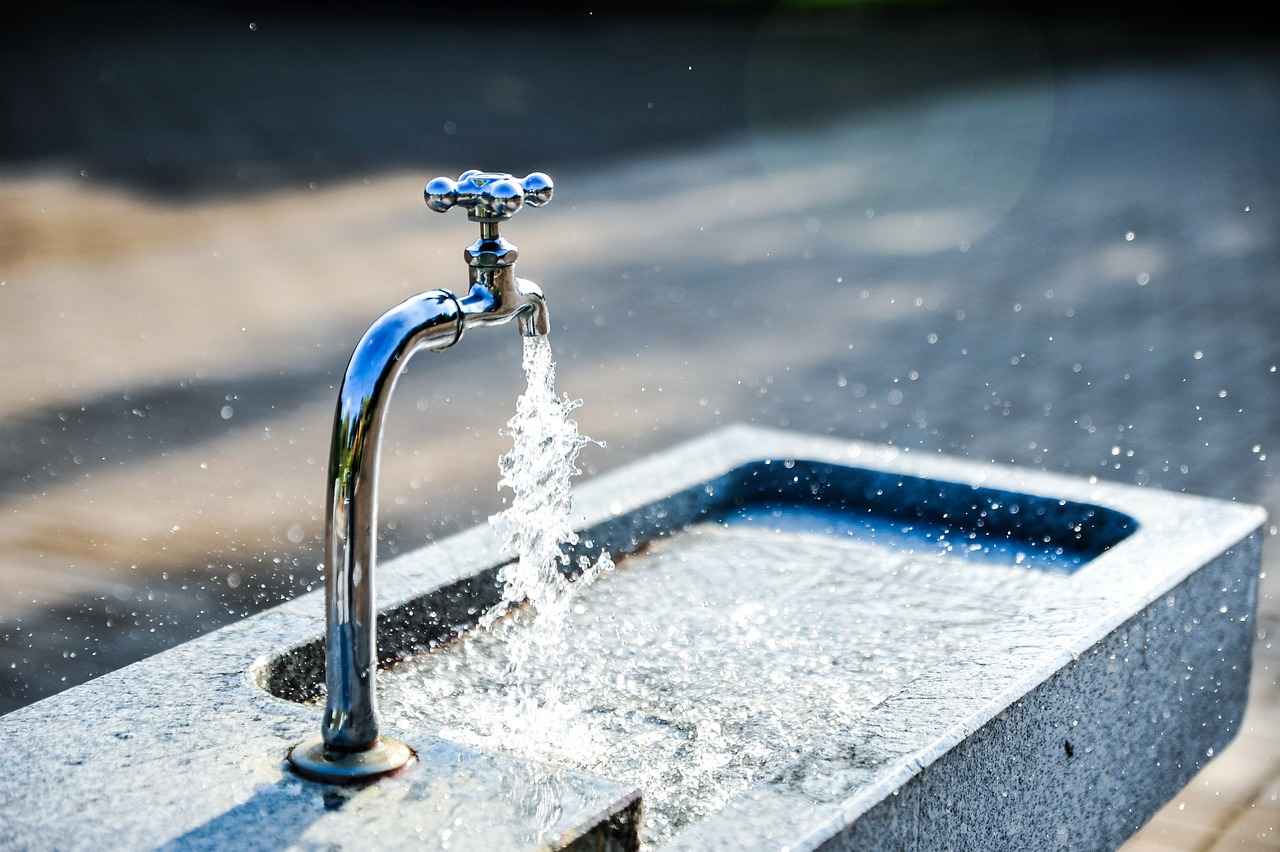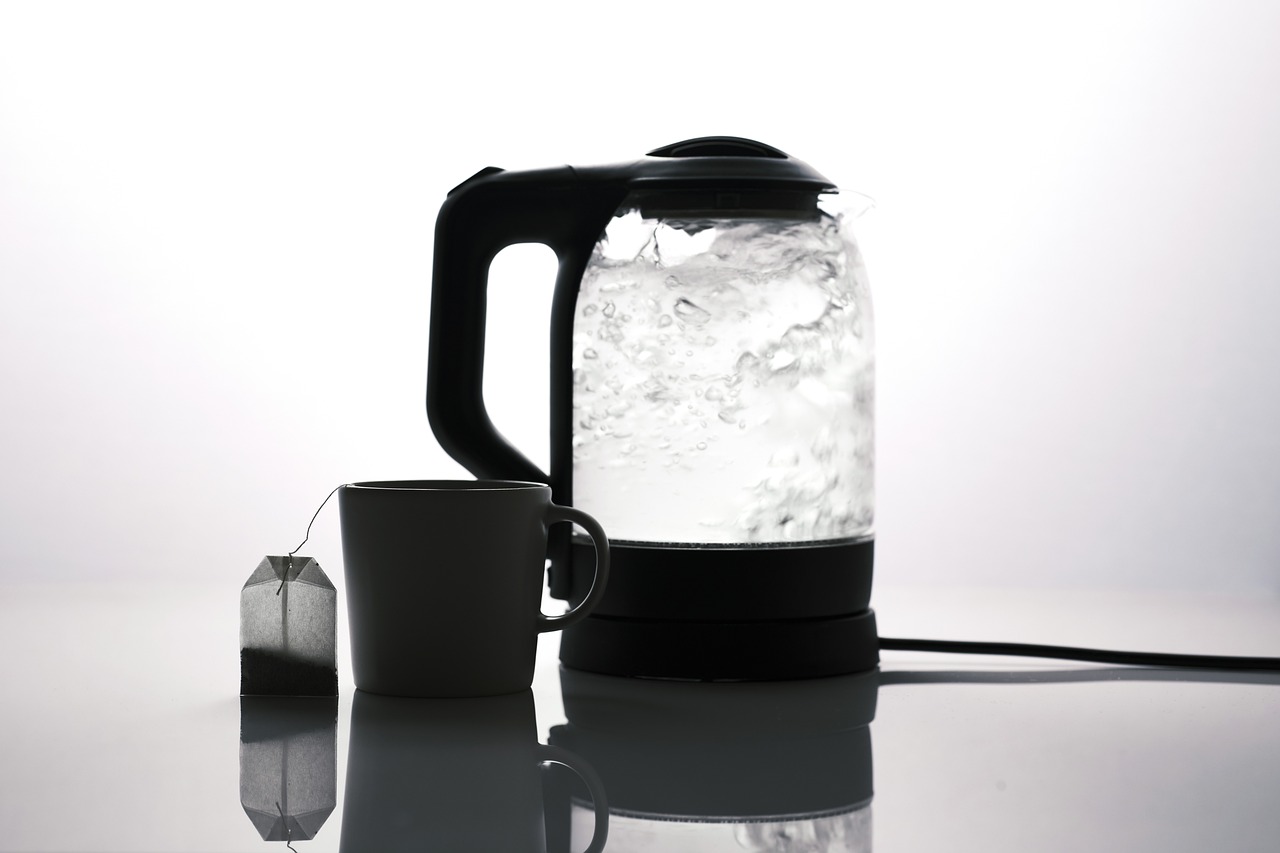This article delves into the intriguing practice of water fasting, exploring its numerous benefits, potential risks, and essential guidelines. The aim is to provide a comprehensive understanding for anyone considering this fasting method.
Understanding Water Fasting
Water fasting is a dietary practice where individuals abstain from all food and caloric beverages, consuming only water for a predetermined duration. This method is often undertaken for various reasons, including detoxification, weight loss, and spiritual purposes. By focusing solely on water, the body enters a state of ketosis, where it begins to burn fat for energy.
Benefits of Water Fasting
- Weight Loss: One of the most significant reasons individuals choose water fasting is for weight loss. By creating a caloric deficit, the body utilizes stored fat, leading to weight reduction.
- Improved Metabolic Health: Water fasting may enhance insulin sensitivity and promote better metabolic function, contributing to overall health.
- Mental Clarity: Many practitioners report increased mental clarity and focus during fasting periods, attributed to reduced sugar intake and stabilized energy levels.
Weight Loss and Water Fasting
Water fasting can be an effective tool for those looking to shed pounds. When the body is deprived of food, it begins to burn fat for energy, leading to weight loss. However, it is crucial to approach this method with caution to ensure that it is done safely.
Caloric Deficit and Fat Burning
Creating a caloric deficit is vital for weight loss, and water fasting naturally facilitates this process. During fasting, the body shifts its energy source from glucose to fat, promoting fat burning.
Muscle Preservation During Fasting
Concerns about muscle loss during water fasting are common. However, with careful planning and a focus on short fasting periods, individuals can minimize muscle loss while effectively promoting fat loss.
Metabolic Benefits of Water Fasting
Research suggests that water fasting can enhance metabolic health by reducing inflammation and improving insulin sensitivity. These benefits can lead to a lower risk of chronic diseases, making water fasting an appealing option for some.
Risks and Considerations of Water Fasting
While water fasting offers several benefits, it is not without risks. Potential side effects include dehydration, nutrient deficiencies, and electrolyte imbalances. Therefore, it is essential to consider personal health conditions before embarking on a water fast.
Health Risks Associated with Water Fasting
Prolonged water fasting can lead to serious health issues if not monitored carefully. Dehydration, dizziness, and fatigue are common, especially if the fast is extended beyond a few days.
Who Should Avoid Water Fasting?
Certain groups, including pregnant women, individuals with eating disorders, and those with chronic health conditions, should avoid water fasting. It is crucial for these individuals to consult healthcare professionals before attempting any form of fasting.
How to Prepare for a Water Fast
Preparation is key to a successful water fast. Gradually reducing food intake before starting can ease the transition and help the body adjust.
Staying Hydrated Before the Fast
Proper hydration is essential leading up to a water fast. Ensuring adequate fluid intake can help mitigate feelings of hunger and prepare the body for the fasting period.
Breaking a Water Fast Safely
Ending a water fast must be done with caution to prevent digestive issues. It is advisable to start with small amounts of easily digestible foods, such as broths or smoothies.
Recommended Foods to Break a Fast
- Bone broth
- Fresh fruit juices
- Steamed vegetables
Signs of Overeating After a Fast
After fasting, it is common to feel tempted to overeat. Recognizing the signs of overeating, such as discomfort and bloating, can help individuals maintain a balanced approach to reintroducing food.

Understanding Water Fasting
Water fasting is a practice that involves refraining from all food and caloric beverages, consuming only water for a designated period. This method of fasting has been adopted for various reasons, including detoxification, weight loss, and spiritual growth. By abstaining from food, individuals aim to give their digestive systems a break and encourage the body to enter a state of autophagy, where it begins to repair and regenerate cells.
The purpose of water fasting can vary significantly among individuals. Some may seek to achieve weight loss, while others may be interested in the potential health benefits associated with fasting, such as improved mental clarity and enhanced metabolic health. Additionally, water fasting is often used as a method for spiritual reflection, allowing individuals to focus on their inner selves and promote mindfulness.
During a water fast, the body undergoes several physiological changes. Initially, the body depletes its glycogen stores, which are carbohydrates stored in the liver and muscles. Once these stores are exhausted, the body begins to shift to fat oxidation for energy, leading to fat loss. This metabolic shift is one of the reasons why many people are drawn to water fasting as a weight-loss strategy.
However, it is crucial to approach water fasting with caution. While it can offer numerous benefits, it also poses potential risks, especially if not done correctly. Individuals with certain health conditions, such as diabetes or eating disorders, should consult with a healthcare professional before attempting a water fast. Moreover, it is essential to stay adequately hydrated throughout the fasting period to prevent dehydration.
To prepare for a water fast effectively, individuals should consider gradually reducing their food intake in the days leading up to the fast. This practice can help ease the transition and minimize discomfort. Staying hydrated before initiating the fast is equally important, as it ensures the body is well-prepared for the upcoming period of abstinence from food.
In summary, water fasting is a multifaceted practice that can serve various purposes, from weight loss to spiritual growth. Understanding its definition and purpose is vital for anyone considering this fasting method. By doing so, individuals can make informed decisions and approach water fasting in a safe and effective manner.

Benefits of Water Fasting
Water fasting has gained popularity in recent years as a method for improving overall health and wellness. This practice involves abstaining from all food and caloric beverages, consuming only water for a specified period. Many individuals are drawn to water fasting due to its potential health benefits, which include weight loss, enhanced metabolic health, and improved mental clarity. Below, we will explore these advantages in detail.
- Weight Loss: One of the most significant benefits of water fasting is its ability to promote weight loss. When the body is deprived of food, it begins to utilize stored fat for energy, leading to a caloric deficit that is essential for weight loss. Studies have shown that individuals can lose a significant amount of weight during a short-term water fast.
- Improved Metabolic Health: Water fasting may enhance metabolic health by improving insulin sensitivity and decreasing inflammation. This can be particularly beneficial for those at risk of metabolic disorders, such as type 2 diabetes. Improved insulin sensitivity allows the body to use glucose more effectively, which can lead to better energy levels and reduced cravings.
- Mental Clarity: Many individuals report experiencing enhanced mental clarity and focus during water fasting. This may be attributed to the body entering a state of ketosis, where it begins to burn fat for fuel instead of carbohydrates. Ketones are known to provide a more stable energy source for the brain, leading to improved cognitive function.
In addition to these primary benefits, water fasting can also promote cellular repair and autophagy. During fasting, the body initiates a process where it cleans out damaged cells and regenerates new ones. This can contribute to overall health and longevity.
It is important to note that while water fasting offers numerous benefits, it is not suitable for everyone. Individuals with certain health conditions, such as diabetes or eating disorders, should consult a healthcare professional before attempting a water fast. Additionally, the duration of the fast should be carefully considered, as prolonged fasting can lead to adverse effects.
In summary, the benefits of water fasting are substantial, ranging from weight loss and improved metabolic health to enhanced mental clarity. However, it is crucial to approach this practice with caution and to be aware of potential risks. Individuals interested in water fasting should conduct thorough research and consider seeking guidance from healthcare professionals to ensure a safe and effective experience.
Weight Loss and Water Fasting
Water fasting, a practice where individuals abstain from all food and caloric beverages, has gained popularity as an effective method for weight loss. This section delves into how water fasting can facilitate weight loss and examines its effectiveness.
Understanding Weight Loss Through Water Fasting
One of the primary mechanisms by which water fasting aids in weight loss is through the creation of a caloric deficit. When the body is deprived of food, it turns to stored energy sources, primarily fat, to meet its energy needs. This process not only helps in shedding excess weight but also promotes fat burning.
Caloric Deficit: The Key to Weight Loss
During a water fast, the body enters a state where it relies on fat reserves for energy. This is particularly effective because it encourages the body to utilize its own fat stores, leading to significant weight loss. Studies have shown that individuals can lose a considerable amount of weight during a short-term water fast due to this natural shift in metabolism.
Fat Burning and Metabolic Adaptation
- When fasting, the body undergoes a metabolic shift, increasing the rate at which it burns fat.
- Insulin levels drop, facilitating fat mobilization from adipose tissue.
- This process can enhance overall metabolic health, potentially leading to long-term weight management.
Muscle Preservation During Water Fasting
One common concern regarding fasting is the potential for muscle loss. However, with proper planning, water fasting can be structured to minimize this risk. Maintaining adequate hydration and ensuring a balanced diet before and after the fast can help preserve muscle mass. Engaging in light resistance training during the fasting period may also support muscle retention.
Psychological Aspects of Water Fasting
Beyond the physical benefits, water fasting can also have psychological advantages. Many individuals report feeling a sense of clarity and focus during a fast, which can enhance motivation and commitment to weight loss goals. This mental clarity often leads to better decision-making regarding food choices post-fast.
Potential Risks and Considerations
While water fasting can be effective for weight loss, it is essential to approach it with caution. Individuals with certain medical conditions, such as diabetes or eating disorders, should consult with a healthcare professional before engaging in fasting practices. Additionally, the duration of the fast should be carefully considered to avoid adverse effects.
Final Thoughts on Water Fasting for Weight Loss
Water fasting can be a powerful tool for weight loss when approached correctly. By understanding the mechanisms behind weight loss, including caloric deficit and fat burning, individuals can leverage this practice effectively. However, it is crucial to remain mindful of potential risks and to seek professional guidance when necessary. With the right preparation and mindset, water fasting can lead to transformative results.
Caloric Deficit and Fat Burning
Creating a caloric deficit is a fundamental principle in the journey of weight loss. When the body is in a state of caloric deficit, it begins to utilize its fat stores for energy, leading to fat burning and weight reduction. One effective method to achieve this caloric deficit is through water fasting.
During a water fast, individuals abstain from all food and caloric beverages, consuming only water. This practice can naturally create a caloric deficit, as the body is not receiving any external energy sources. As a result, it turns to its stored energy—primarily fat—to meet its energy needs.
When fasting, the body undergoes several physiological changes. Initially, it uses glycogen stores, which are carbohydrates stored in the liver and muscles. Once these stores are depleted, usually within the first 24 hours, the body shifts to fat oxidation. This process involves breaking down fat cells into fatty acids and glycerol, which are then converted into energy. This transition is crucial as it marks the beginning of significant fat burning.
Furthermore, water fasting can enhance the metabolic rate temporarily. Research indicates that short-term fasting can increase norepinephrine levels, a hormone that boosts fat breakdown and promotes fat loss. This hormonal response aids in mobilizing fat stores, making them more accessible for energy production.
In addition to fat burning, water fasting can also lead to improved insulin sensitivity. When the body is not constantly processing food, insulin levels stabilize, allowing for better regulation of blood sugar levels. This can be particularly beneficial for individuals with insulin resistance or those looking to manage their weight more effectively.
However, it is essential to approach water fasting with caution. While it can lead to rapid weight loss, prolonged fasting without proper guidance can have adverse effects. Individuals may experience fatigue, dizziness, or nutrient deficiencies if the fast is extended beyond a safe duration.
To maximize the benefits of water fasting while minimizing risks, it is advisable to:
- Consult a healthcare professional before starting a water fast, especially for individuals with underlying health conditions.
- Start with short fasting periods, gradually increasing the duration as the body adapts.
- Stay hydrated throughout the fasting period, as adequate water intake is crucial for overall health.
- Monitor your body’s response during the fast, and be prepared to break the fast if adverse symptoms occur.
In summary, achieving a caloric deficit through water fasting can effectively promote fat burning. By understanding how the body utilizes fat stores during fasting and implementing safe practices, individuals can harness the benefits of this approach while minimizing potential risks.
Muscle Preservation During Fasting
Concerns about muscle loss during fasting are prevalent, particularly among those who aim to lose weight while maintaining their strength and muscle mass. Understanding how to structure a water fast can significantly mitigate these concerns and promote effective fat loss without sacrificing muscle integrity.
Water fasting, which involves abstaining from all food and caloric beverages while consuming only water, can lead to a caloric deficit. However, it is essential to approach this method carefully to ensure that the body prioritizes fat loss over muscle loss. Here are several strategies to help preserve muscle during a water fast:
- Incorporate Resistance Training: Engaging in resistance training prior to and during the fasting period can help signal the body to maintain muscle mass. This type of exercise promotes muscle protein synthesis, which is crucial for muscle preservation.
- Optimize Protein Intake Before Fasting: Prior to starting a water fast, it is beneficial to consume a diet rich in protein. This helps to build muscle and provides the body with amino acids that can be utilized during the fasting period.
- Limit Fasting Duration: Shorter fasting periods, such as intermittent fasting, can be effective for fat loss while minimizing muscle loss. Extended fasting periods can lead the body to utilize muscle for energy, so keeping fasts to a manageable timeframe is vital.
- Stay Hydrated: Proper hydration is essential during a water fast. Dehydration can lead to muscle breakdown, so drinking adequate amounts of water is crucial for muscle preservation and overall health.
- Consider Refeeding Strategies: After completing a water fast, implementing a refeeding phase with adequate protein intake can help restore muscle mass and prevent muscle loss.
Furthermore, understanding the body’s metabolic response during fasting is crucial. When the body enters a fasted state, it begins to utilize glycogen stores and subsequently shifts to fat oxidation for energy. This metabolic shift can be beneficial for fat loss, but without proper strategies in place, the body may also break down muscle tissue for energy.
Research indicates that the body can adapt to fasting by enhancing fat utilization while preserving muscle, especially when combined with the right physical activity and nutritional strategies. Therefore, individuals looking to undertake a water fast should focus on these aspects to ensure they are maximizing fat loss while minimizing muscle loss.
In summary, while concerns about muscle loss during fasting are valid, they can be addressed through strategic planning and execution. By incorporating resistance training, optimizing pre-fast nutrition, and staying hydrated, individuals can effectively navigate the fasting process while preserving muscle mass and promoting fat loss.
Metabolic Benefits of Water Fasting
Water fasting has garnered attention for its potential to improve metabolic health. This practice, which involves abstaining from all food and caloric beverages while consuming only water for a designated period, may significantly influence insulin sensitivity and inflammation levels in the body. Understanding these metabolic benefits can provide insight into why many individuals are turning to this fasting method as a means of enhancing their overall health.
One of the primary metabolic benefits of water fasting is its ability to enhance insulin sensitivity. Insulin is a hormone that plays a crucial role in regulating blood sugar levels. When the body becomes less sensitive to insulin, it can lead to higher blood sugar levels and, eventually, type 2 diabetes. Research indicates that periods of fasting can help reset insulin sensitivity, allowing the body to process glucose more effectively. This improvement can lead to better energy levels and reduced cravings for sugary foods, ultimately supporting weight management and metabolic health.
Additionally, water fasting is known to reduce inflammation in the body. Chronic inflammation is linked to numerous health issues, including heart disease, arthritis, and various metabolic disorders. During a water fast, the body undergoes a process called autophagy, where it removes damaged cells and regenerates new ones. This process not only aids in cellular repair but also helps to decrease inflammatory markers in the body. By reducing inflammation, individuals may experience lower risks of chronic diseases and improved overall well-being.
| Metabolic Benefits | Details |
|---|---|
| Improved Insulin Sensitivity | Enhances glucose processing, reduces blood sugar levels, and may prevent type 2 diabetes. |
| Reduced Inflammation | Promotes autophagy, leading to decreased inflammatory markers and lower chronic disease risks. |
Furthermore, water fasting may also influence the body’s hormonal balance. Hormones such as ghrelin and leptin are responsible for regulating hunger and satiety. Fasting can lead to favorable changes in these hormones, helping to control appetite and reduce overeating. This hormonal adjustment can be particularly beneficial for those struggling with weight management or emotional eating.
It is essential to approach water fasting with caution and awareness of individual health conditions. While the metabolic benefits are promising, not everyone may respond positively to fasting. Individuals with certain medical conditions or those taking specific medications should consult healthcare professionals before embarking on a water fast.
In summary, the metabolic benefits of water fasting, including improved insulin sensitivity, reduced inflammation, and hormonal balance, present a compelling case for its potential impact on health. As more individuals seek natural methods to enhance their metabolic health, water fasting remains a popular and intriguing option.

Risks and Considerations of Water Fasting
Water fasting, while offering numerous benefits, also comes with its share of risks and considerations. This section aims to shed light on the potential side effects and important factors to consider for anyone contemplating a water fast.
Engaging in a water fast typically involves abstaining from all food and caloric beverages, consuming only water for a designated period. While many individuals pursue this practice for its health benefits, it is crucial to understand the health risks associated with it.
| Potential Risks | Description |
|---|---|
| Dehydration | While water is consumed, a lack of electrolytes can lead to dehydration symptoms such as dizziness, fatigue, and confusion. |
| Nutrient Deficiencies | Extended fasting can result in a lack of essential nutrients, leading to long-term health issues if not managed properly. |
| Muscle Loss | Prolonged fasting may cause the body to break down muscle tissue for energy, especially if not done correctly. |
| Blood Sugar Fluctuations | Individuals with diabetes or blood sugar regulation issues may experience dangerous fluctuations during a fast. |
Furthermore, certain populations should avoid water fasting altogether. This includes:
- Pregnant or breastfeeding women: Nutritional needs are heightened during this period, making fasting inadvisable.
- Individuals with eating disorders: Fasting can exacerbate unhealthy eating behaviors.
- People with chronic health conditions: Those with heart disease, diabetes, or other serious health issues should consult a healthcare provider before attempting a fast.
- Older adults: Age-related changes in metabolism and nutrient absorption can make fasting risky.
Additionally, it is essential to be aware of the psychological impacts of water fasting. Some individuals may experience mood swings, irritability, or heightened anxiety due to the drastic changes in their eating patterns. Being mentally prepared and having a support system in place can help mitigate these effects.
In summary, while water fasting can offer various health benefits, it is imperative to approach this practice with caution. Understanding the potential risks and who should avoid fasting is crucial for ensuring safety and effectiveness. Always consult with a healthcare professional before embarking on a water fast to ensure it aligns with your individual health needs and goals.
Health Risks Associated with Water Fasting
Water fasting, while often pursued for its potential health benefits, can expose individuals to a range of health risks that must be carefully considered. This section focuses on the significant dangers associated with prolonged water fasting, particularly emphasizing dehydration, nutrient deficiencies, and other possible health complications.
Dehydration is one of the most immediate risks of water fasting. Although the practice involves consuming only water, the body still requires a balance of electrolytes and minerals to function properly. Prolonged abstention from food can disrupt this balance, leading to symptoms such as dizziness, fatigue, and confusion. Without adequate electrolyte intake, individuals may experience severe dehydration, which can result in complications such as kidney damage or cardiovascular issues.
Another critical concern is nutrient deficiencies. Water fasting eliminates all food sources, which means the body is deprived of essential vitamins and minerals necessary for optimal health. Over time, this can lead to deficiencies in vital nutrients such as vitamin B12, iron, and calcium. Symptoms of these deficiencies can range from anemia and weakened bones to impaired immune function. It is crucial to recognize that long-term fasting can exacerbate these issues, especially in individuals with pre-existing health conditions.
Moreover, water fasting can trigger metabolic disturbances. The body, when deprived of food for extended periods, may enter a state of starvation, leading to a slowdown in metabolic processes. This can result in muscle loss as the body begins to break down muscle tissue for energy. Additionally, prolonged fasting can lead to a condition known as refeeding syndrome upon reintroducing food, characterized by severe electrolyte shifts that can be life-threatening.
Individuals with certain medical conditions, such as diabetes, eating disorders, or those on specific medications, should be particularly cautious. For instance, water fasting can significantly affect blood sugar levels, posing serious risks for those with diabetes. Furthermore, individuals with a history of eating disorders may find that fasting exacerbates unhealthy behaviors and thought patterns.
In summary, while water fasting may offer some benefits, the associated health risks cannot be overlooked. It is essential for anyone considering this practice to consult with a healthcare professional and to weigh the potential dangers against the desired outcomes. Understanding these risks can help individuals make informed decisions about their health and wellness journeys.
- Dehydration: Can lead to dizziness and kidney damage.
- Nutrient Deficiencies: May cause anemia and weakened immune function.
- Metabolic Disturbances: Risk of muscle loss and refeeding syndrome.
- Considerations for Medical Conditions: Particularly risky for those with diabetes or eating disorders.
Who Should Avoid Water Fasting?
Water fasting, while beneficial for many, is not suitable for everyone. Understanding who should avoid this practice is crucial for ensuring health and safety. Certain individuals may face significant risks if they engage in water fasting, and it is important for them to seek alternatives that align better with their health needs.
Individuals with Chronic Health Conditions
People suffering from chronic health conditions such as diabetes, heart disease, or kidney disorders should approach water fasting with caution. For instance, those with diabetes may experience dangerous fluctuations in blood sugar levels during a fast, which can lead to serious health complications. Similarly, individuals with heart conditions may find that fasting exacerbates their symptoms due to changes in electrolyte balance.
Pregnant and Breastfeeding Women
Pregnant and breastfeeding women have increased nutritional needs to support both their health and that of their child. Water fasting can lead to nutrient deficiencies that may affect fetal development or milk production. As such, it is advisable for these individuals to consult healthcare professionals before considering any fasting regimen.
Individuals with Eating Disorders
Those with a history of eating disorders, such as anorexia or bulimia, should avoid water fasting. Engaging in fasting can trigger unhealthy behaviors and thoughts about food, potentially leading to a relapse. It is essential for individuals in recovery from eating disorders to maintain a balanced and healthy relationship with food.
People Taking Certain Medications
Individuals on medications, particularly those that require food intake for proper absorption or that can cause side effects when taken on an empty stomach, should refrain from water fasting. For instance, medications for epilepsy or certain antidepressants may have adverse effects if not taken with food. Consulting a healthcare provider is vital for anyone in this situation.
The Elderly and Children
The elderly and children are also groups that should avoid water fasting. The elderly may have decreased physiological reserves and may be more susceptible to dehydration and nutrient deficiencies. Children, whose bodies are still developing, need a consistent intake of nutrients for growth and development. Fasting can disrupt their nutritional balance and overall health.
Conclusion
In summary, while water fasting can offer benefits, it is not a one-size-fits-all approach. Individuals with chronic health conditions, pregnant or breastfeeding women, those with eating disorders, people on certain medications, and vulnerable populations like the elderly and children should approach fasting with caution or seek alternative methods to achieve their health goals. Always consult a healthcare professional before undertaking significant dietary changes.

How to Prepare for a Water Fast
Preparation is key to a successful water fast. Engaging in a water fast can be a profound experience, but it requires careful planning and mental readiness. In this section, we will explore practical tips to help you prepare both physically and mentally for the fasting experience.
- Understand Your Goals: Before starting a water fast, it’s essential to clarify your objectives. Are you fasting for health benefits, spiritual reasons, or weight loss? Understanding your motivation will help you stay committed throughout the process.
- Consult a Healthcare Professional: Especially if you have existing health conditions, it’s wise to consult with a healthcare provider. They can provide personalized advice and ensure that fasting is safe for you.
- Gradual Dietary Changes: Instead of abruptly stopping food intake, consider gradually reducing your meals in the days leading up to the fast. This can help your body adjust and minimize discomfort. Start by eliminating processed foods, sugars, and heavy meals.
- Hydration is Crucial: In the days before your fast, focus on staying well-hydrated. Drinking plenty of water not only prepares your body for the fast but also helps to flush out toxins. Aim for at least 8-10 glasses of water daily.
- Mental Preparation: Water fasting is as much a mental challenge as it is a physical one. Spend time meditating or engaging in mindfulness practices to strengthen your mental resolve. Visualizing your success can be a powerful motivator.
- Plan Your Schedule: Choose a period for your fast when you can minimize stress and distractions. Avoid scheduling important events or strenuous activities during this time. A quiet environment can enhance your fasting experience.
- Gather Support: Inform friends or family about your fasting plans. Having a support system can provide encouragement and accountability. Consider joining online communities or forums where others share their fasting experiences.
By taking these steps, you can set yourself up for a more successful and enriching water fasting experience. Remember, preparation is not just about the physical aspects; it’s also about cultivating the right mindset to navigate the challenges that may arise during the fast.
Gradual Reduction of Food Intake
Before embarking on a water fast, it is crucial to prepare your body adequately. One effective method to ease this transition is through the . This process allows your body to adjust to the upcoming fasting period, minimizing potential discomfort and enhancing the fasting experience.
To begin, consider implementing a phased approach to reduce your calorie consumption. Start by eliminating processed foods and sugary snacks from your diet. These items can lead to cravings and a spike in blood sugar levels, making the transition more challenging. Instead, focus on incorporating whole foods such as fruits, vegetables, and lean proteins into your meals.
- Week 1: Begin by cutting down on portion sizes. Aim to reduce your meal portions by 25%. This gradual decrease helps your body adapt without feeling deprived.
- Week 2: Introduce one or two days of lighter eating, where you consume only fruits and vegetables. This can help your digestive system prepare for the fasting phase.
- Week 3: Focus on consuming only two meals a day instead of three. Make these meals nutrient-dense to ensure you are still receiving essential vitamins and minerals.
During this preparation phase, it is also important to pay attention to hunger cues. Listen to your body, and if you feel hungry, opt for healthy snacks such as nuts or yogurt in moderation. This strategy will help you avoid feelings of deprivation, which can lead to binge eating once you start the fast.
In addition to reducing food intake, staying hydrated is vital. Begin increasing your water consumption several days before the fast. Aim for at least 8-10 glasses of water daily. Proper hydration helps to flush out toxins and prepares your body for the lack of food during the fasting period.
As you approach the fasting start date, consider incorporating mindfulness practices such as meditation or yoga. These activities can help calm your mind and prepare you mentally for the fasting experience. They also promote a positive mindset, which is essential for successfully completing a water fast.
Lastly, ensure that you have a clear plan for your fasting period. Set specific goals and understand the reasons behind your decision to fast. This clarity will not only motivate you during the fasting days but also help you maintain focus on your health objectives.
By taking these preparatory steps, you can significantly enhance your fasting experience. A gradual reduction in food intake, coupled with proper hydration and mental preparation, will help your body adapt smoothly to the upcoming water fast, making it a more effective and fulfilling journey.
Staying Hydrated Before the Fast
Proper hydration is a fundamental aspect of preparing for a water fast. Before embarking on this journey, ensuring that your body is adequately hydrated can significantly enhance your fasting experience. This section delves into the importance of hydration and offers practical tips for maintaining fluid intake.
Why Hydration Matters
During a water fast, your body relies solely on water for sustenance. Starting the fast with a well-hydrated body can help mitigate some of the common side effects associated with fasting, such as headaches, dizziness, and fatigue. Adequate hydration also supports metabolic functions and helps in the detoxification process, allowing your body to transition smoothly into fasting.
How Much Water Should You Drink?
While individual hydration needs can vary based on factors such as body weight, activity level, and climate, a general guideline is to aim for at least 8-10 cups (64-80 ounces) of water per day in the days leading up to your fast. Here’s a simple breakdown:
| Body Weight (lbs) | Recommended Water Intake (oz) |
|---|---|
| 100 | 50 |
| 150 | 75 |
| 200 | 100 |
| 250 | 125 |
Tips for Maintaining Fluid Intake
- Start Early: Begin increasing your water intake a few days before your fast.
- Infuse Your Water: Adding slices of lemon, cucumber, or mint can make drinking water more enjoyable.
- Set Reminders: Use your phone or a water tracking app to remind you to drink regularly.
- Monitor Your Urine Color: A light yellow color indicates proper hydration, while dark urine suggests you need to drink more.
- Limit Diuretics: Reduce consumption of caffeine and alcohol as they can lead to dehydration.
Listen to Your Body
As you prepare for your water fast, it’s essential to pay attention to your body’s signals. If you feel thirsty, don’t ignore it. Thirst is your body’s way of signaling that it needs more fluids. Additionally, if you experience symptoms such as dry mouth or fatigue, it may be a sign that you need to increase your water intake.
In conclusion, ensuring that you are well-hydrated before starting a water fast is crucial for a successful experience. By following the tips outlined above, you can prepare your body to enter a fasting state more comfortably and effectively. Remember, hydration is not just about drinking water; it’s about listening to your body and responding to its needs.

Breaking a Water Fast Safely
Breaking a water fast safely is crucial to ensure a smooth transition back to regular eating habits. When you have abstained from food for an extended period, your digestive system requires special attention to avoid discomfort and potential health issues. This section provides essential guidelines for safely reintroducing food after a water fast.
Understanding the Importance of Caution
After a period of fasting, your body undergoes several physiological changes. The digestive system, having rested for days, may be sensitive to sudden food intake. Therefore, proceeding with caution is vital to prevent digestive distress, such as bloating, nausea, or diarrhea.
Gradual Reintroduction of Foods
It is recommended to start with small portions of easily digestible foods. Gradually increasing the quantity and complexity of foods allows your digestive system to adjust. Here are some suitable options:
- Broths and Soups: Start with clear vegetable or chicken broth to provide hydration and nutrients.
- Fruits: Soft fruits like watermelon or applesauce can be gentle on the stomach and provide natural sugars.
- Steamed Vegetables: Lightly steamed veggies such as zucchini or carrots are nutritious and easy to digest.
- Whole Grains: Gradually introduce whole grains like oatmeal or brown rice after a day or two.
Hydration is Key
Continuing to stay hydrated is essential even after breaking your fast. Drinking water or herbal teas can assist in digestion and help your body adjust to food intake.
Listening to Your Body
Pay attention to how your body reacts when you start eating again. If you experience discomfort, consider reducing portion sizes or opting for lighter foods. It’s crucial to listen to your body’s signals and adjust accordingly.
Signs of Overeating
After a fast, the temptation to overeat can be strong. Being aware of the signs of overeating is important to prevent discomfort. Symptoms may include:
- Feeling overly full or bloated.
- Nausea or stomach cramps.
- Fatigue or lethargy after meals.
To avoid these issues, it’s advisable to eat slowly and mindfully, allowing your body time to signal fullness.
Consulting with Healthcare Professionals
If you have any underlying health conditions or concerns about how to break your fast, it is wise to consult with a healthcare professional. They can provide personalized guidance based on your health status and fasting experience.
By following these best practices, you can ensure a safe and effective transition back to regular eating after a water fast. This careful approach not only supports your digestive health but also enhances the overall benefits gained from your fasting experience.
Recommended Foods to Break a Fast
Breaking a water fast is a crucial moment in the fasting journey, and the foods you choose can significantly affect your recovery and overall well-being. After a period of abstaining from food, your body needs gentle reintroduction of nutrients to avoid digestive distress and maximize health benefits.
When selecting foods to consume after a water fast, it is essential to consider their digestibility and nutritional content. Here are some recommended foods to help ease your body back into a regular eating pattern:
- Bone Broth: Rich in minerals and easy on the stomach, bone broth provides essential nutrients and hydration. It helps to replenish electrolytes lost during fasting and supports gut health.
- Fresh Juices: Diluted vegetable or fruit juices can be an excellent way to reintroduce flavors and nutrients. Opt for juices that are low in sugar and high in vitamins, such as green juices made from spinach, cucumber, and celery.
- Steamed Vegetables: Lightly steamed vegetables like zucchini, carrots, and spinach are easy to digest and packed with vitamins. They provide fiber, which is crucial for digestive health.
- Fruits: Soft fruits such as watermelon, bananas, and avocados can be beneficial. They are hydrating and provide natural sugars that can help restore energy levels.
- Fermented Foods: Foods like yogurt, kefir, or sauerkraut can aid in restoring gut flora. These foods are rich in probiotics, which can help ease digestion after fasting.
- Oatmeal or Porridge: A warm bowl of oatmeal can be comforting and easy to digest. It provides carbohydrates for energy and can be topped with fruits or a drizzle of honey for added flavor.
It is advisable to start with small portions to allow your digestive system to adjust. Overeating right after a fast can lead to discomfort, bloating, or nausea. Pay attention to your body’s signals and eat slowly to gauge how your body responds to the reintroduction of food.
In addition to choosing the right foods, it’s important to stay hydrated. Continue to drink water or herbal teas to support digestion and overall recovery. Avoid heavy, greasy, or processed foods initially, as they can overwhelm your digestive system and counteract the benefits of your fast.
Furthermore, consider the timing of your meals. Spacing out your food intake throughout the day can help your body adjust gradually. Listen to your body, and prioritize nutrient-dense options that will nourish you after your fasting experience.
By carefully selecting the foods you consume after a water fast, you can enhance your recovery, support your digestive health, and maintain the benefits gained during the fasting period. Remember, the goal is to transition smoothly back to regular eating habits while continuing to prioritize your health and well-being.
Signs of Overeating After a Fast
After completing a water fast, many individuals experience a range of sensations and cravings that can lead to the temptation of overeating. Recognizing the signs of overeating is crucial for maintaining the benefits achieved during the fast.
One of the most common signs of overeating is a feeling of fullness that quickly turns into discomfort. This sensation often occurs when individuals consume large quantities of food shortly after breaking their fast. It’s important to listen to your body and recognize when you are no longer hungry.
Another sign is cravings for specific foods, often high in sugar or fat. These cravings can be triggered by the body’s sudden shift from fasting to eating, leading to impulsive food choices. To combat this, it’s beneficial to plan meals in advance, focusing on nutrient-dense foods that provide satiety without excessive calories.
Additionally, emotional eating can become a factor. Many people turn to food as a means of coping with stress or anxiety, especially after the self-discipline required during a fast. Being aware of emotional triggers can help in making more mindful eating decisions.
To prevent overeating after a fast, consider the following strategies:
- Start with small portions: Begin with light meals that are easy to digest, such as broths or smoothies, to ease your body back into eating.
- Stay hydrated: Sometimes thirst is mistaken for hunger. Drinking water before meals can help manage appetite.
- Practice mindful eating: Focus on eating slowly and savoring each bite. This practice can enhance satisfaction and help prevent overeating.
- Establish a meal schedule: Planning regular meal times can help structure your eating habits and reduce the urge to snack impulsively.
Lastly, keeping a food journal can be an effective tool. By documenting what you eat and how you feel, you can identify patterns and make adjustments as needed. This practice promotes awareness and encourages healthier choices post-fast.
In summary, understanding the signs of overeating and implementing practical strategies can significantly enhance the experience of breaking a water fast. By being mindful and intentional about food choices, individuals can maintain the health benefits gained during their fasting journey.
Frequently Asked Questions
- What is the purpose of water fasting?
Water fasting is primarily done to detoxify the body, promote weight loss, and improve mental clarity. By abstaining from food and consuming only water, individuals aim to give their digestive system a break and allow the body to focus on healing and rejuvenation.
- How long can one safely water fast?
The duration of a water fast can vary, but most people find that a fast lasting between 24 to 72 hours is manageable and safe. However, it’s essential to listen to your body and consult a healthcare professional before attempting a prolonged fast.
- What are the risks associated with water fasting?
While water fasting can offer benefits, it also carries risks such as dehydration, nutrient deficiencies, and potential health complications for those with underlying medical conditions. It’s crucial to be aware of these risks and consider your personal health status before starting a fast.
- Can I exercise while water fasting?
Exercising during a water fast is generally not recommended, especially for extended periods. Your energy levels may drop, and your body needs to conserve energy for essential functions. Light activities like walking may be acceptable, but listen to your body and adjust accordingly.
- How should I break a water fast?
Breaking a water fast should be done gently. Start with small portions of easily digestible foods like broth, fruits, or steamed vegetables. Gradually reintroduce solid foods to avoid overwhelming your digestive system.












